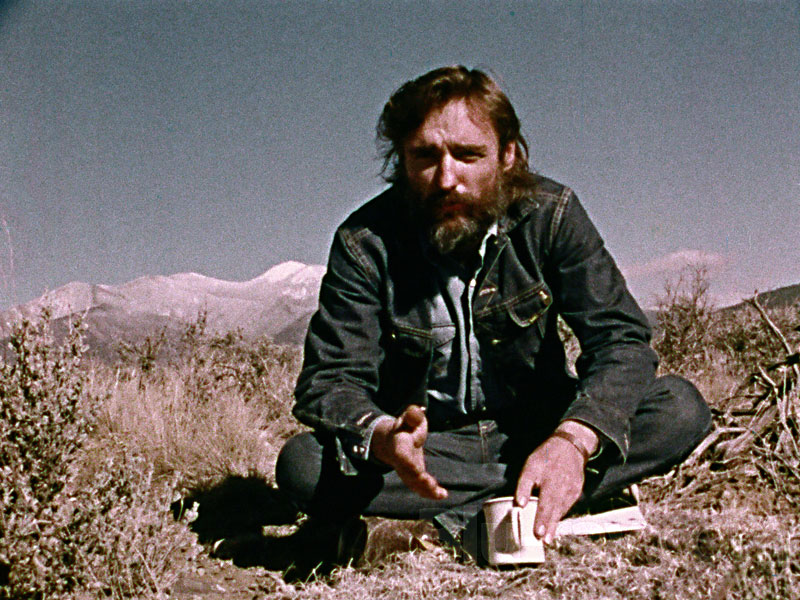Hopped-Up Hopper
AFS screens rare 1970 Dennis Hopper doc The American Dreamer
By Josh Kupecki, Fri., Nov. 20, 2015
When counterculture salvo Easy Rider hit theatres in 1969, it helped kickstart a new and confusing age for studio executives trying to tap into that pesky youth market. So, it was understandable when Universal Pictures courted actor/director Dennis Hopper with a sweet deal: a million bucks, carte blanche, and the right to final cut. Hopper bit, and he and his cadre set off for Peru to make Hopper's long-gestating pet project The Last Movie. You won't believe what happened next! (Actually, if you only have a passing knowledge of Hopper and the major export of Peru, you probably have a pretty good idea.) While the shooting of the film in a remote village was grueling, once Hopper returned to the States with over 40 hours of footage, that was when the fun really began. Ensconced in a ranch he bought in Taos, New Mexico, Hopper would spend the next 18 months trying to cut the footage into something resembling a film.
Photojournalist Lawrence Schiller and actor/screenwriter L.M. Kit Carson convinced Hopper to let them shoot a documentary about his creative process over the course of those months. And while The American Dreamer has been screened over the years on college campuses and festivals, it is one of those rare and sought-after films, having never gotten a proper theatrical release. That changed this year, when Etiquette Pictures announced plans for a newly restored release. And now you can check it out on the big screen thanks to the Austin Film Society. A document of its time, to be sure, The American Dreamer is a peek into the morass of the drug-addledly lucid mind of Hopper and the hangers-on that orbited around him like debris from an exploding star.
Here's Schiller and Carson trekking through the New Mexico landscape, following Hopper as he shoots guns and waxes philosophical in all his "Hey, man" glory. Here's an endless parade of Hopper and Co. smoking grass and pretending the camera isn't invasively capturing every moment. Here's Hopper drunk and irritated in the editing room, as he and his editors comb through miles of footage. And that's where the film takes on a very different hue. You realize that every frame of this film has been staged, that Hopper is acutely aware of the camera and is basically starring in some sort of platonic ideal of his life, fashioning himself as an outlaw outside of the studio system. It is telling that he is attributed as co-writer on the film. Scenes with him and three naked women in a bathtub are almost a parody of Sixties free-love sensibilities, and the love-it-or-hate-it soundtrack strums endless folksy ballads (the Byrd's Gene Clark even wrote a couple of songs about Hopper that must be heard to be believed). It's a chronicle of a time and place that sees Hopper agreeing to walk naked in a suburban area of Los Alamos as some sort of statement, but only if the filmmakers agree to procure 50 women to come out to the ranch for a "sensitivity encounter," where he claims to be a lesbian (the filmmakers were only able to acquire about half that). Yeah, it's that kind of party.
When The Last Movie was eventually released in 1971, the critics were not kind and audiences greeted it with an indifferent shrug. The studio was banking on another hit like Easy Rider, but what they got was an experimental narrative that was seen as disjointed and self-obsessed. Time has been kind to that film, so it will be interesting to see how Schiller and Carson's doc goes to further that cause. In any case, if you consider yourself a fan of Hopper, the Sixties, or megalomania, The American Dreamer is not to be missed.
The American Dreamer screens Friday, Nov. 20, 8pm, and Monday, Nov. 23, 8pm, at the Marchesa Hall and Theatre. For tickets and more info, see www.austinfilm.org.










